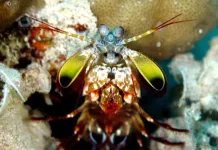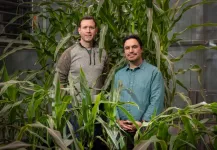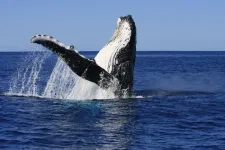(Press-News.org) In this Special Issue of Science, 3 Reviews and a Policy Forum highlight research on Earth’s frozen places – from the Arctic to the Antarctic – and how it’s changing due to climate change and the geopolitical challenges this important work faces. In the first Review, Julienne Stroeve and colleagues provide a preview of what the Arctic region may look like in a warmer world. Without stronger climate action, global temperatures are set to rise +2.7°C above preindustrial levels, causing irreversible Arctic transformation. Under this future, Stroeve et al. show that nearly all days in the region would exceed past temperature extremes, summers would see an ice-free Arctic Ocean, Greenland’s melt zones would quadruple, and permafrost would shrink by half. While these changes would severely disrupt ecosystems, and damage Arctic communities and infrastructure, the authors note that stronger climate action could significantly mitigate these consequences, preserving the Arctic’s stability and resilience. In a second Review, Helen Fricker and colleagues focus on Antarctic ice, which plays a crucial role in regulating Earth’s climate, global sea levels, ocean circulation, and planetary reflectivity. Fricker et al. highlight key knowledge gaps in these processes, which create uncertainties in the stability of the Antarctic ice sheet and the potential impacts of its continued loss. According to Fricker et al., progress in these areas depends on high-resolution satellite monitoring, targeted field studies, improved modeling, and strengthened interdisciplinary collaboration to reduce uncertainties and refine future projections. A third Review focuses on Antarctic biodiversity. According to Luis Pertierra and colleagues, Antarctica hosts myriad unique life forms, yet much of the region’s biodiversity and ecological functioning remains poorly understood. Outside of a few well-known vertebrate species, much about the region’s invertebrate, plant, and microbial life remains unknown. Here, Pertierra et al. highlight the shortfalls in Antarctic biodiversity research, explain how these gaps hinder ecological insight and conservation in the region, and offer a framework for addressing them. Lastly, in a Policy Forum, Jennifer Spence and colleagues discuss the geopolitical challenges facing Arctic research. The Arctic is at the forefront of critical global issues, including the uneven impacts of climate change, the challenge of balancing economic development with conservation, and the complexity of governance across multiple boundaries. These issues are complicated further by rising populism, geopolitical tensions, and distrust in governmental institutions. Spence et al. highlight three key issues, including understanding the regional and global effects of climate change, ensuring research benefits Arctic communities, and maintaining international cooperation in the face of growing geopolitical pressures. However, despite these challenges, the Arctic region has pioneered innovative governance models that prioritize Indigenous engagement, as well as fostering international cooperation through institutions like the Arctic Council to promote sustainable development and environmental protection.
END
Special Issue: The cryosphere
Summary author: Walter Beckwith
2025-02-06
ELSE PRESS RELEASES FROM THIS DATE:
Scientists discover brain mechanism that helps overcome fear
2025-02-06
Researchers at the Sainsbury Wellcome Centre (SWC) at UCL have unveiled the precise brain mechanisms that enable animals to overcome instinctive fears. Published today in Science, the study in mice could have implications for developing therapeutics for fear-related disorders such as phobias, anxiety and post-traumatic stress disorder (PTSD).
The research team, led by Dr Sara Mederos and Professor Sonja Hofer, mapped out how the brain learns to suppress responses to perceived threats that prove ...
Mantis shrimp clubs filter sound to mitigate damage
2025-02-06
Known for their powerful punch, mantis shrimp can smash a shell with the force of a .22 caliber bullet. Yet, amazingly, these tough critters remain intact despite the intense shockwaves created by their own strikes.
Northwestern University researchers have discovered how mantis shrimp remain impervious to their own punches. Their fists, or dactyl clubs, are covered in layered patterns, which selectively filter out sound. By blocking specific vibrations, the patterns act like a shield against self-generated shockwaves.
The study will be published on Friday (Feb. 7) in the journal Science.
The findings someday could be applied to developing ...
Large differences in water-seeking ability found in U.S. corn varieties
2025-02-06
A corn plant knows how to find water in soil with the very tips of its roots, but some varieties, including many used for breeding high-yielding corn in the U.S., appear to have lost a portion of that ability, according to a Stanford-led study. With climate change increasing droughts, the findings hold potential for developing more resilient varieties of corn.
The study, published in the journal Science, uncovers genetic mechanisms behind root “hydropatterning,” or how plant roots branch toward water and avoid dry spaces in soil. In particular, the researchers ...
Whale song has structure similar to human language
2025-02-06
Humpback whale song is a striking example of a complex, culturally transmitted behavior, but up to now, there was little evidence it has language-like structure. Human language, which is also culturally transmitted, has recurring parts whose frequency of use follows a particular pattern. In humans, these properties help learning and may come about because they help language be passed from one generation to the next. This work innovatively applies methods inspired by how babies discover words in speech to humpback whale recordings, uncovering the same statistical structures found in all human languages. It reveals previously undetected structure in ...
Cracking the Burmese python code: New data zeroes in on game-changing strategies
2025-02-06
In a groundbreaking study, University of Florida scientists statistically analyzed large amounts of data collected by Burmese python contractors, revealing critical insights about how to most efficiently remove the reptiles.
Researchers correlated survey outcomes, including python removals, with survey conditions, using statistical modeling. For example, the researchers examined if factors like time or temperature impacted the chance of removing a python. They also analyzed whether the most surveyed areas aligned with the highest python removals. This allowed the researchers to ...
Risk it or kick it? Study analyzes NFL coaches’ risk tolerance on fourth down
2025-02-06
During the Super Bowl, every decision matters. With millions of fans watching, the game often comes down to a single play call. And no call is more scrutinized than what a coach decides to do on fourth down. Punt? Attempt a field goal? Or go for it?
A new BYU study explains why NFL coaches, including Super Bowl contenders Andy Reid (Kansas City Chiefs) and Nick Sirianni (Philadelphia Eagles), may behave too conservatively on fourth down. Despite growing acceptance of analytics-driven decision-making, most coaches, ...
UC3M patents a new design for a soft robotic joint that is more adaptable and robust
2025-02-06
Researchers at Universidad Carlos III de Madrid (UC3M) have developed a new soft joint model for robots with an asymmetrical triangular structure and an extremely thin central column. This breakthrough, recently patented, allows for versatility of movement, adaptability and safety, and will have a major impact in the field of robotics.
“The main feature of this new design is that it allows greater bending angles to be achieved with less force, providing the robots with great versatility and adaptability of movement,” explains Concha Monje, professor in the UC3M Department ...
Nutrition labels meant to promote healthy eating could discourage purchases
2025-02-06
Some food labels designed to nudge Americans toward healthier food choices can have the opposite effect, new University of Florida research shows.
The study is particularly compelling because it comes as the U.S. Food and Drug Administration weighs whether to require front-of-package food labels. Through a newly proposed rule, the agency introduced labels highlighting saturated fat, sodium and added sugar. Each value on the labels, a percent of the recommended daily value, corresponds to one of three levels: low, medium and high.
The UF/IFAS study, published in the journal Food Policy, examined front-of-package labels professing the contents inside as “healthy.” ...
A new way to detect inflammation
2025-02-06
CLEVELAND—Nearly every disease has an inflammatory component, but blood tests can’t pinpoint inflammation in specific organs or tissues in the human body.
Now researchers at Case Western Reserve University have developed a method to detect inflammation using antibodies, potentially leading to blood tests for disease-specific biomarkers such as for heart disease, Alzheimer’s disease and various cancers. Their breakthrough also holds promise for drug discovery.
“This research opens up an amazing number of pathways ...
Crohn's & Colitis Congress® spotlights key IBD research findings
2025-02-06
San Francisco, CA (Feb. 5, 2025) – The Crohn’s & Colitis Foundation and the American Gastroenterological Association (AGA) are excited to host the annual Crohn’s & Colitis Congress®, taking place Feb. 6-8, in San Francisco, CA. This premier event will showcase cutting-edge research, innovative technologies, and advanced patient care strategies set to transform the lives of one in 100 Americans living with inflammatory bowel disease (IBD), including Crohn’s disease and ulcerative colitis.
Below ...
LAST 30 PRESS RELEASES:
A genetic brake that forms our muscles
CHEST announces first class of certified critical care advanced practice providers awarded CCAPP Designation
Jeonbuk National University researchers develop an innovative prussian-blue based electrode for effective and efficient cesium removal
Self-organization of cell-sized chiral rotating actin rings driven by a chiral myosin
Report: US history polarizes generations, but has potential to unite
Tiny bubbles, big breakthrough: Cracking cancer’s “fortress”
A biological material that becomes stronger when wet could replace plastics
Glacial feast: Seals caught closer to glaciers had fuller stomachs
Get the picture? High-tech, low-cost lens focuses on global consumer markets
Antimicrobial resistance in foodborne bacteria remains a public health concern in Europe
Safer batteries for storing energy at massive scale
How can you rescue a “kidnapped” robot? A new AI system helps the robot regain its sense of location in dynamic, ever-changing environments
Brainwaves of mothers and children synchronize when playing together – even in an acquired language
A holiday to better recovery
Cal Poly’s fifth Climate Solutions Now conference to take place Feb. 23-27
Mask-wearing during COVID-19 linked to reduced air pollution–triggered heart attack risk in Japan
Achieving cross-coupling reactions of fatty amide reduction radicals via iridium-photorelay catalysis and other strategies
Shorter may be sweeter: Study finds 15-second health ads can curb junk food cravings
Family relationships identified in Stone Age graves on Gotland
Effectiveness of exercise to ease osteoarthritis symptoms likely minimal and transient
Cost of copper must rise double to meet basic copper needs
A gel for wounds that won’t heal
Iron, carbon, and the art of toxic cleanup
Organic soil amendments work together to help sandy soils hold water longer, study finds
Hidden carbon in mangrove soils may play a larger role in climate regulation than previously thought
Weight-loss wonder pills prompt scrutiny of key ingredient
Nonprofit leader Diane Dodge to receive 2026 Penn Nursing Renfield Foundation Award for Global Women’s Health
Maternal smoking during pregnancy may be linked to higher blood pressure in children, NIH study finds
New Lund model aims to shorten the path to life-saving cell and gene therapies
Researchers create ultra-stretchable, liquid-repellent materials via laser ablation
[Press-News.org] Special Issue: The cryosphereSummary author: Walter Beckwith








